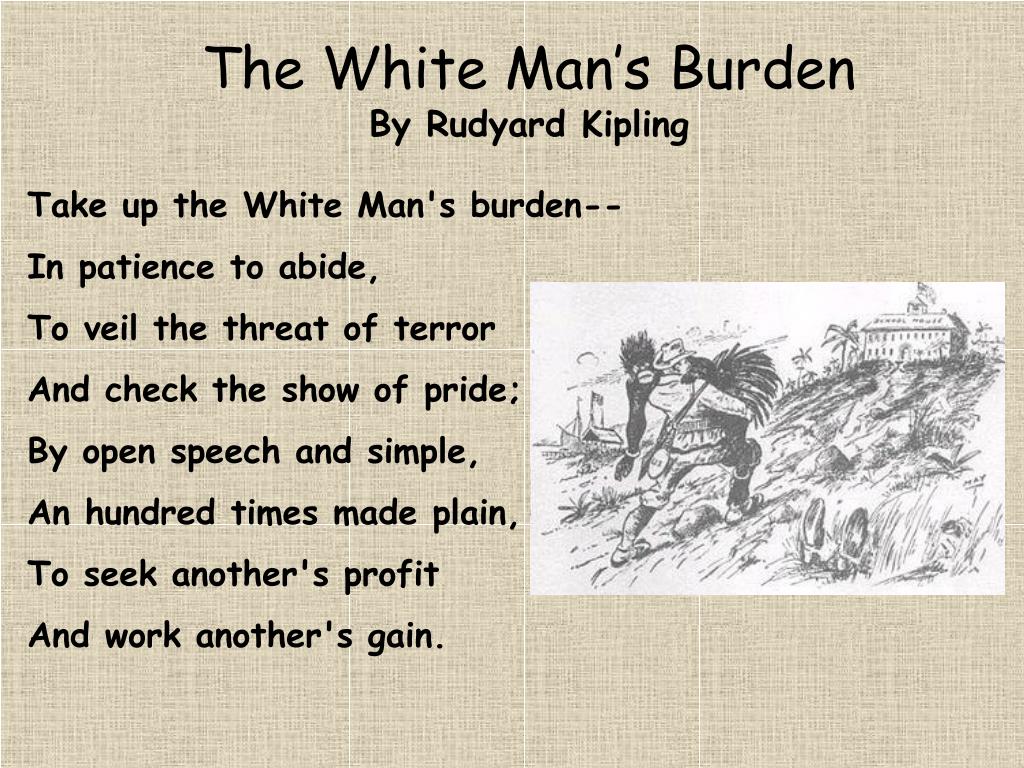
PPT “The White Man’s Burden” PowerPoint Presentation, free download
Rudyard Kipling, The White Man's Burden, 1899 This famous poem, written by Britain's imperial poet, was a response to the American take over of the Phillipines after the Spanish-American War.

The White Man's Burden Poem by Rudyard Kipling
Read in a contemporary context, it's important to consider the motivations behind Kipling's 'The White Man's Burden' while at the same time, trying to understand why this particular mindset of white superiority was put forth. Kipling presents the reader with inherently racist images of dominance, cast as "help" provided to the native peoples of the Philippines.
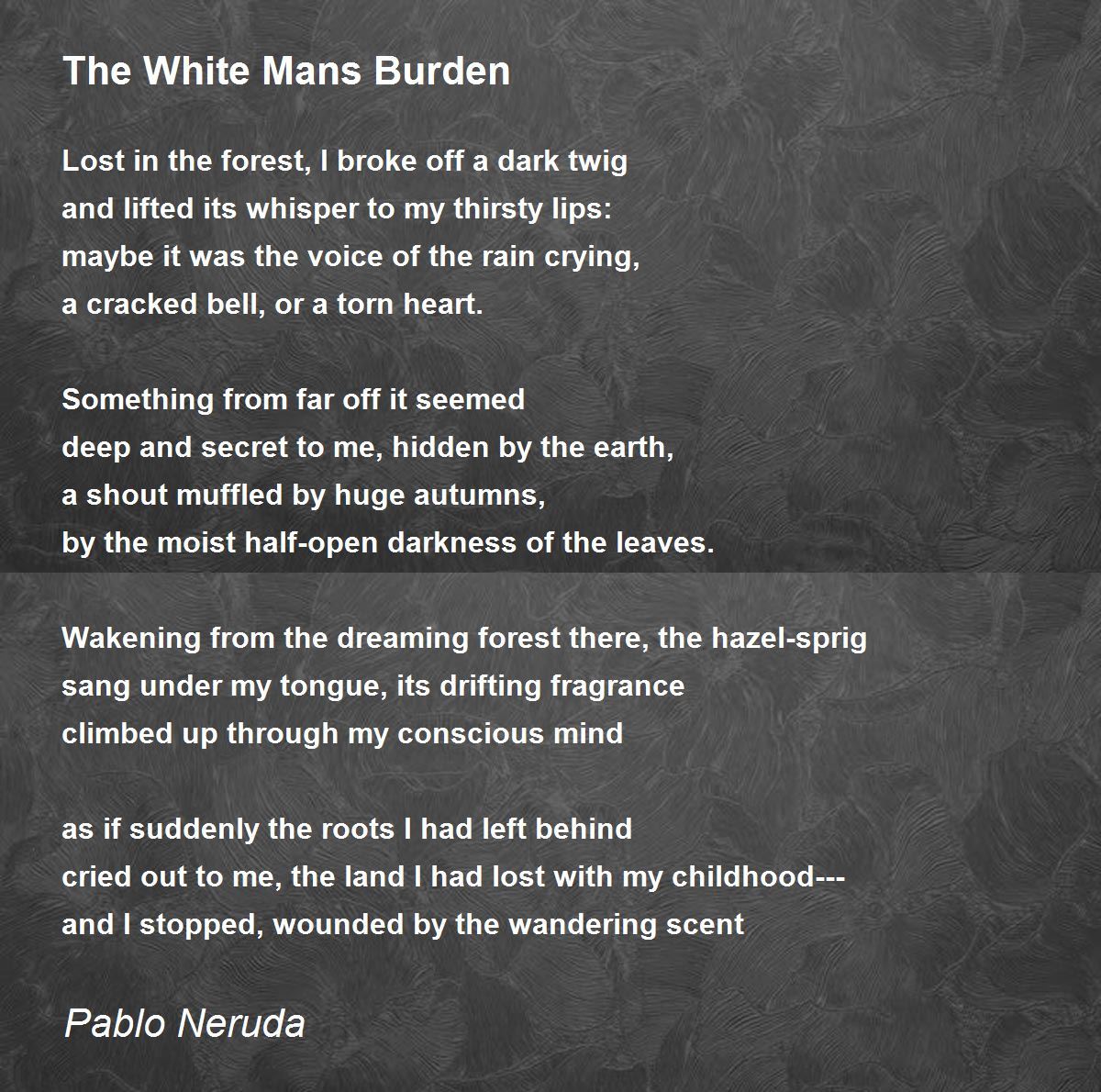
The White Mans Burden Poem by Pablo Neruda Poem Hunter
The White Man's Burden. 1899. (The United States and the Philippine Islands) Take up the White Man's burden - Send forth the best ye breed - Go bind your sons to exile To serve your captives' need; To wait in heavy harness On fluttered folk and wild - Your new-caught sullen peoples, Half devil and half child. Take up the White Man's burden.

PPT “The White Man’s Burden” PowerPoint Presentation, free download
The editorial cartoon " 'The White Man's Burden' (Apologies to Rudyard Kipling)" shows John Bull (Britain) and Uncle Sam (U.S.) delivering the world's people of colour to civilisation (Victor Gillam, Judge magazine, 1 April 1899). The people in the basket carried by Uncle Sam are labelled Cuba, Hawaii, Samoa, 'Porto Rico', and the Philippines, while the people in the basket carried by John.

The White Mans Burden by Rudyard Kipling
The poet, Rudyard Kipling, was born in British India in 1865 and spent much of his life there. He produced many works of fiction and prose set there, the most famous being the Jungle Book.. The British Empire is generally recognized as having been a force for good in India through the 19 th century and arguably beyond. When India was given independence from the British Empire and partitioned.

the white mans burden Rudyard Kipling Religion And Belief
By all ye cry or whisper, By all ye leave or do, The silent, sullen peoples. Shall weigh your Gods and you. Take up the White Man's burden --. Have done with childish days --. The lightly proffered laurel, The easy, ungrudged praise. Comes now, to search your manhood.
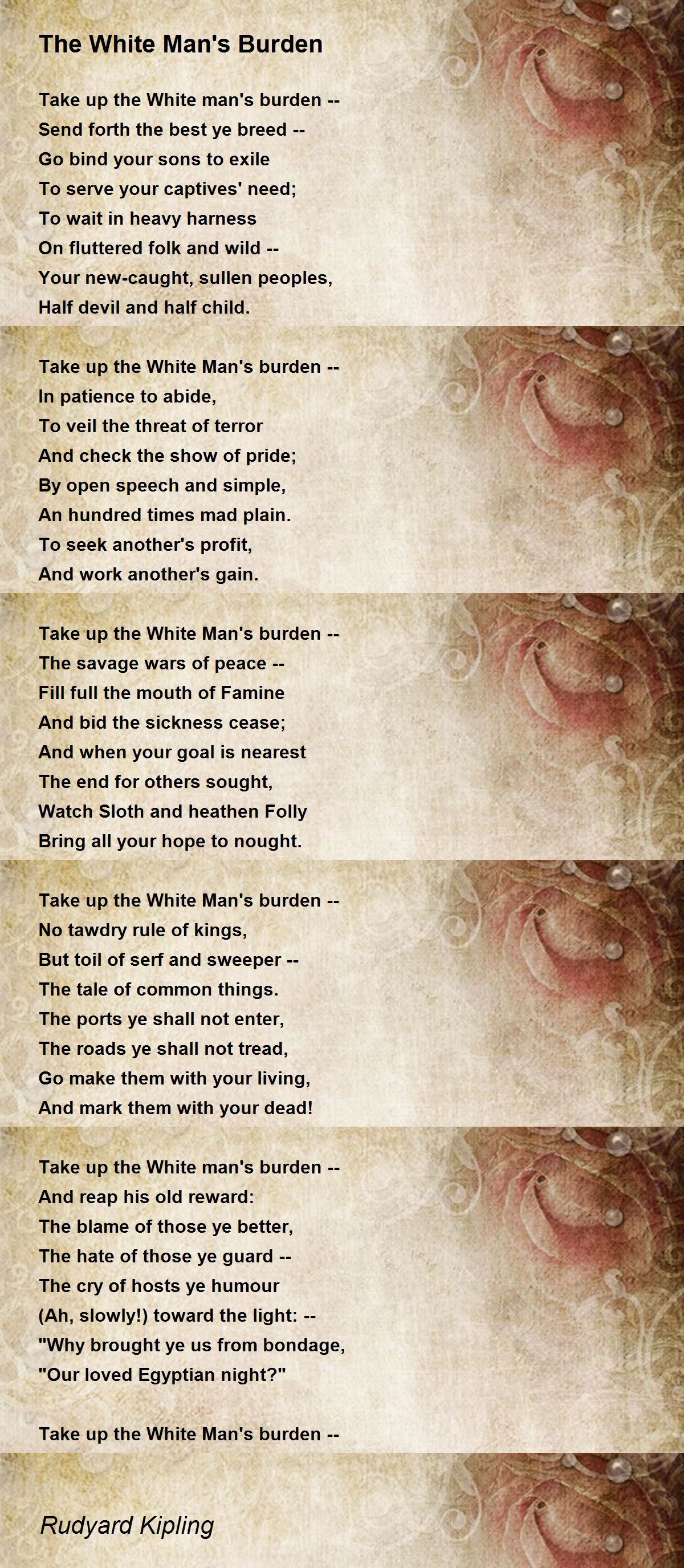
The White Man's Burden The White Man's Burden Poem by Rudyard Kipling
Take up the White Man's burden—. The savage wars of peace—. Fill full the mouth of Famine, [20] And bid the sickness cease; And when your goal is nearest. (The end for others sought) Watch sloth and heathen folly. Bring all your hope to nought. [25] Take up the White Man's burden—.
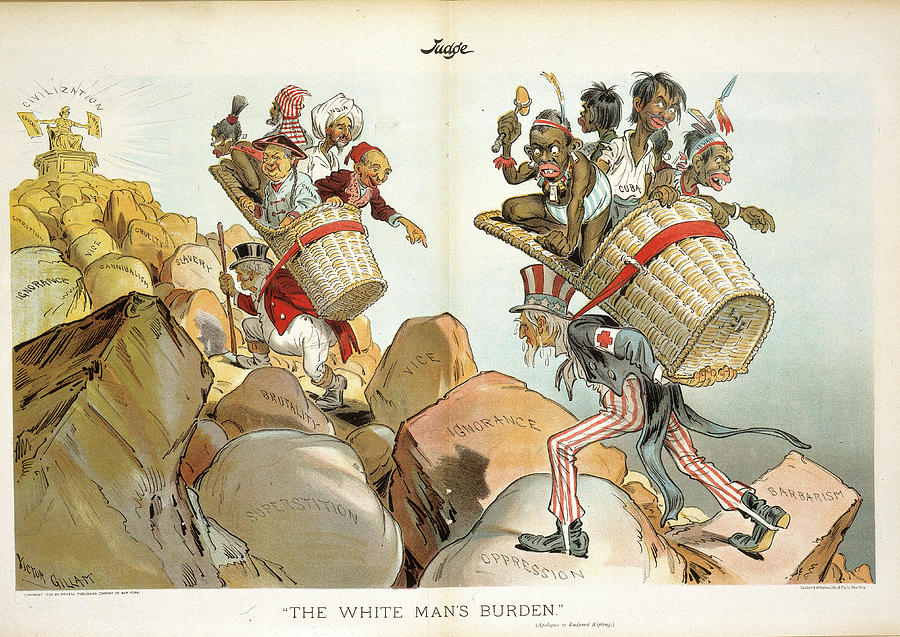
'the White Man's Burden' Photograph by British Library
Take up the White Man's burden--. The savage wars of peace--. Fill full the mouth of Famine. And bid the sickness cease; And when your goal is nearest. The end for others sought, Watch sloth and heathen Folly. Bring all your hopes to nought. Take up the White Man's burden--.
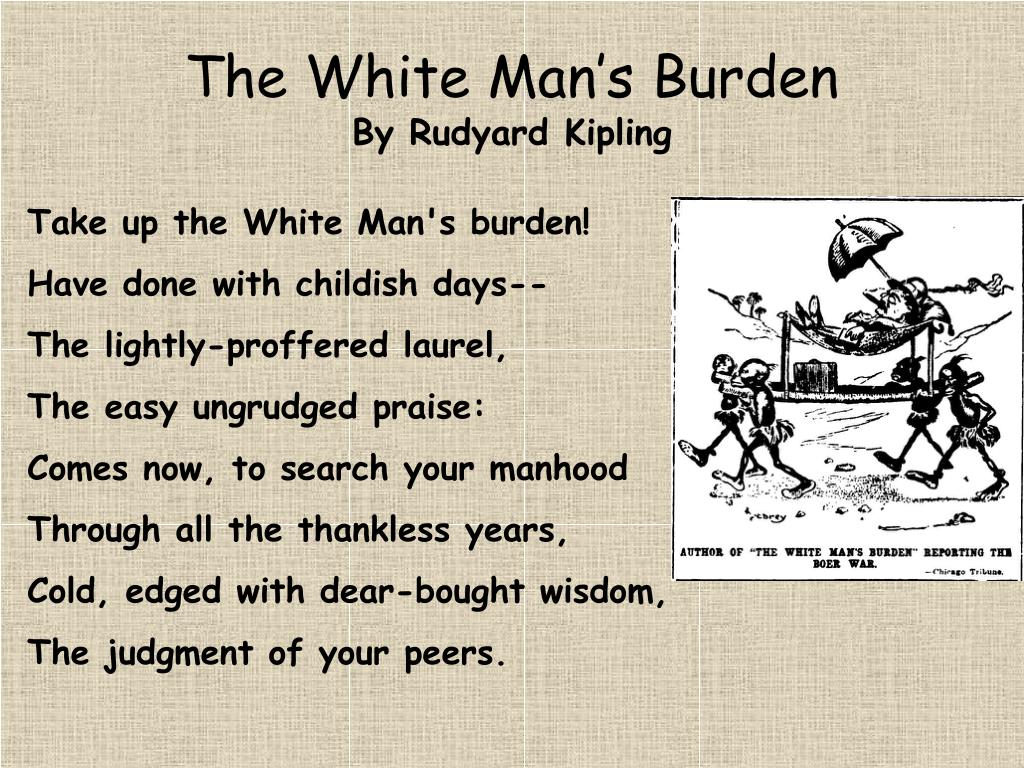
PPT “The White Man’s Burden” PowerPoint Presentation, free download
Discussion of themes and motifs in Rudyard Kipling's The White Man's Burden. eNotes critical analyses help you gain a deeper understanding of The White Man's Burden so you can excel on your essay.
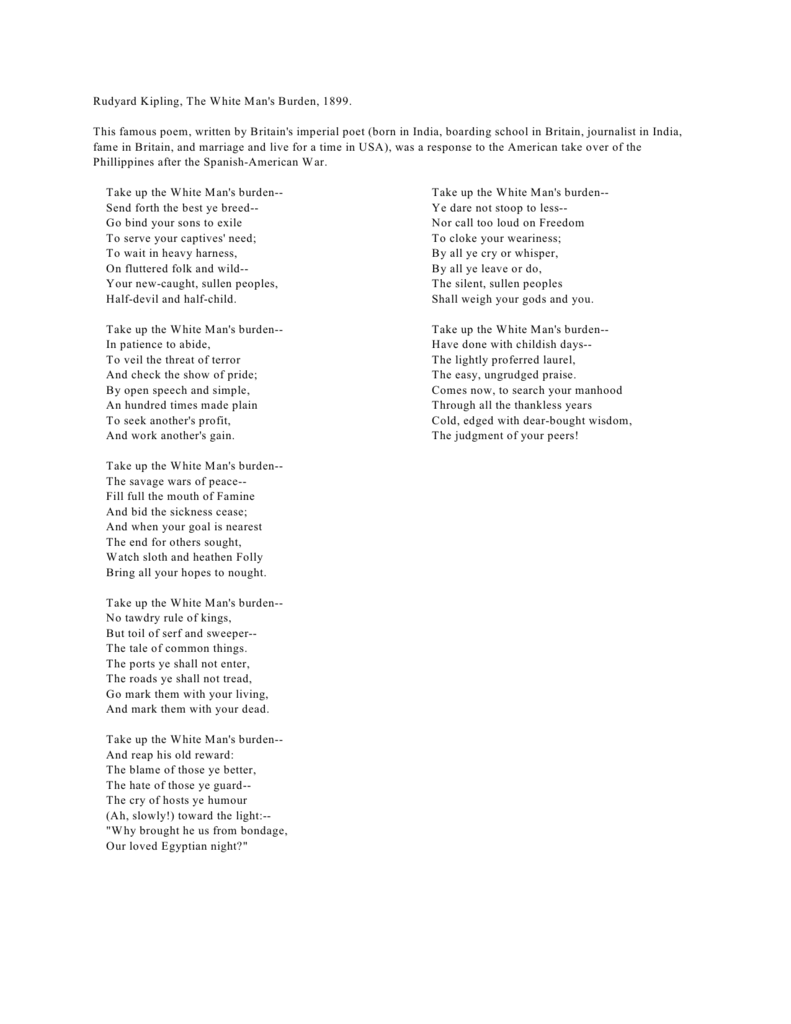
Rudyard Kipling, The White Man's Burden, 1899. This famous poem
Poetry Analysis—"The White Man's Burden" by Eliza Fabillar, American Social History Project. This activity asks students to consider British novelist and poet Rudyard Kipling's 1899 poem "The White Man's Burden"—which urged the U. S. to take up the "burden" of empire, as had Britain and other European nations—and several satirical and critical responses to it.

The White Man's Burden Poem Summary and Analysis LitCharts
Analysis. "The White Man's Burden," published in 1899 in McClure's magazine, is one of Kipling's most infamous poems. It has been lauded and reviled in equal measure and has come to stand as the major articulation of the Occident's rapacious and all-encompassing imperialist ambitions in the Orient. The poem was initially composed.

The white man's burden
The ports ye shall not enter, The roads ye shall not tread, Go, make them with your living. And mark them with your dead. Take up the White Man's burden, And reap his old reward—. The blame of those ye better. The hate of those ye guard—. The cry of hosts ye humour.

the White Man's burden by Kipling Poems, Quotes
To cloke your weariness; By all ye cry or whisper, By all ye leave or do, The silent, sullen peoples. Shall weigh your gods and you. Take up the White Man's burden--. Have done with childish days.
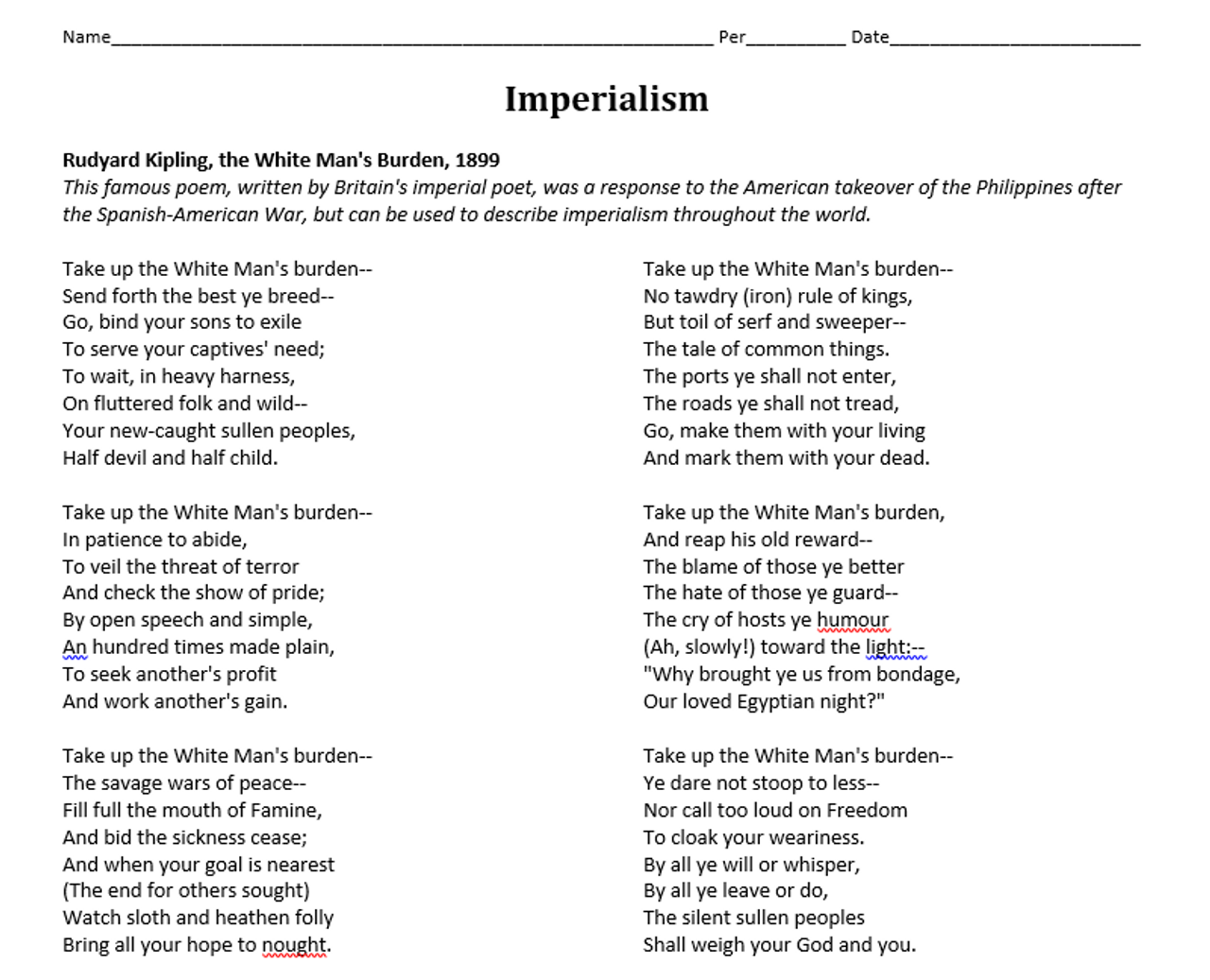
Imperialism White Man's Burden Poem Worksheet Amped Up Learning
"The White Man's Burden" is a lyric poem written by Rudyard Kipling, an English short-story writer, novelist, and poet who achieved enormous success and acclaim during his lifetime. The poem was published simultaneously in The Times newspaper in England and in McClure's Magazine in the United States in February 1899. Directly under the title appeared the words, "The United States and.
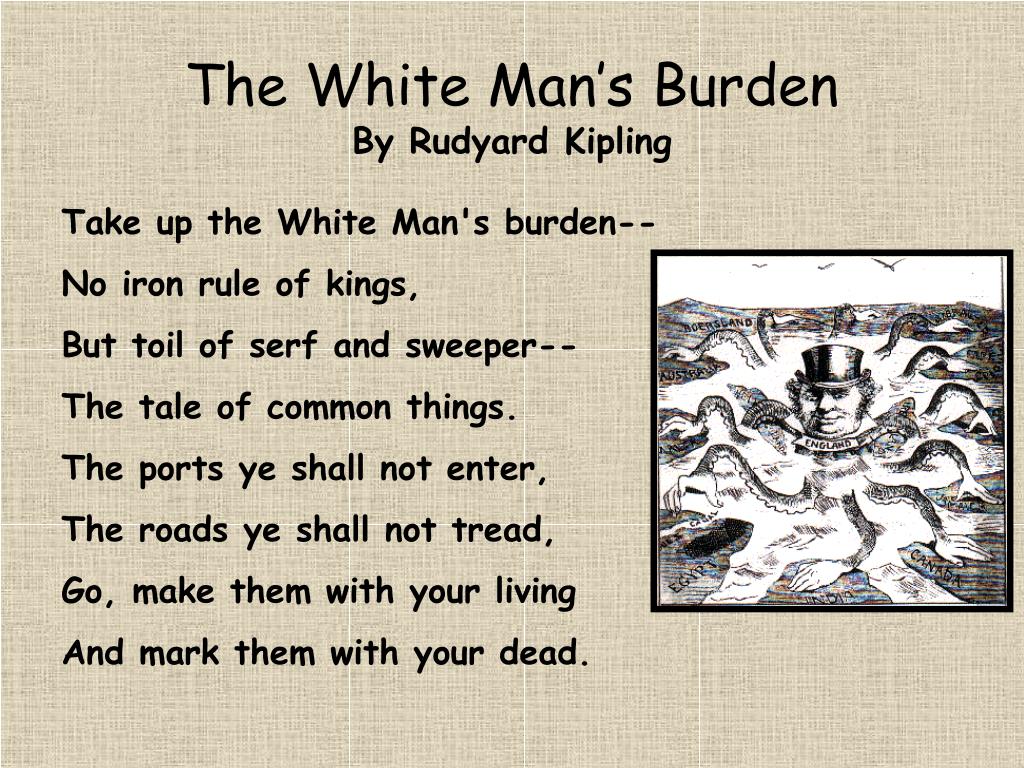
The White Mans Burden Rudyard Kipling Poem
The blame of those ye better, The hate of those ye guard— 36 The cry of hosts ye humor (Ah, slowly!) toward the light:— "Why brought he us from bondage, bondage: slavery 1Our loved Egyptian night?" 40 Take up the White Man's burden—
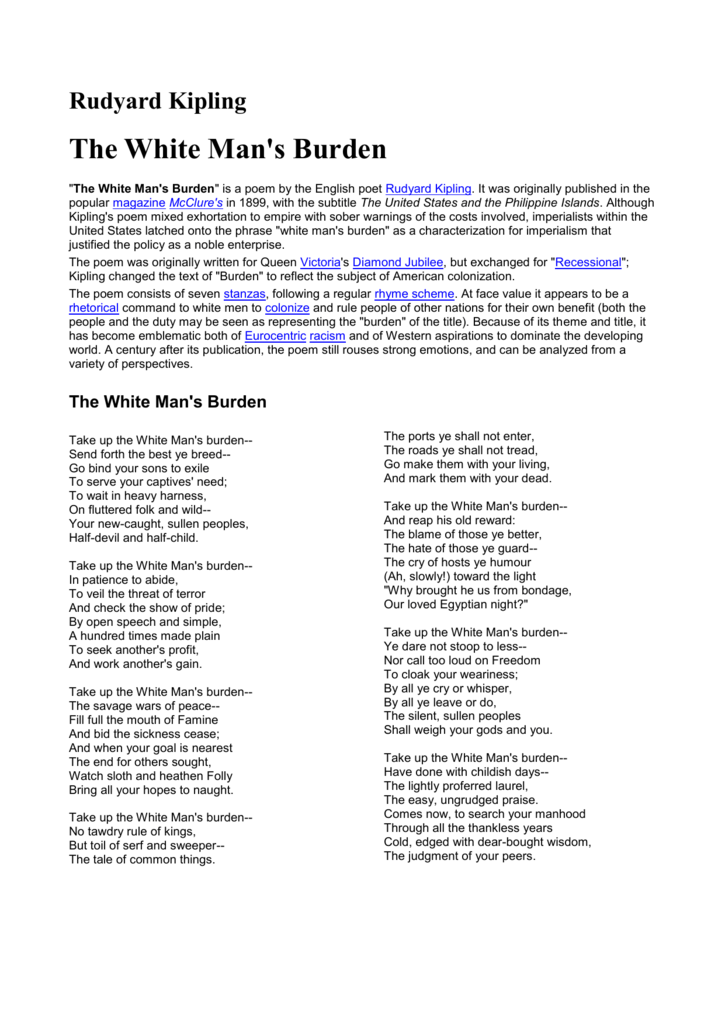
👍 White mans burden poem. What exactly is the 'white man's burden
Pinney] One of the most often quoted and most regularly misunderstood poems in the canon. It is helpful to read "The White Man's Burden", which has been used to condemn the form of imperialism that Kipling embraced, alongside his letter of 18 August 1898, to the American, George Cram Cook. At the time of Kipling's letter, Cook, a.